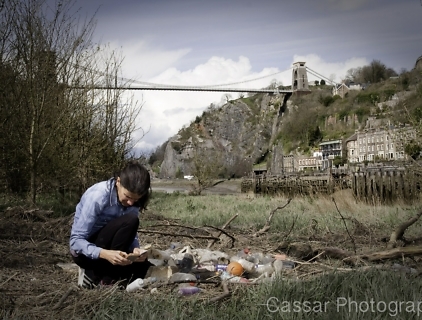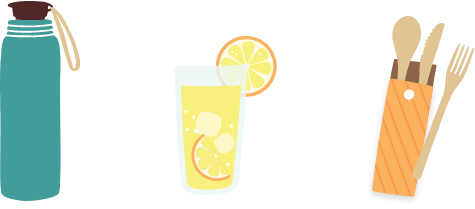Making cleanups count
Rebecca Prince-Ruiz | 7 September 2021
Neighbourhood and ocean cleanups
This September, around the world, people and community groups are uniting to take care of their local environment by taking part in a neighbourhood or beach cleanup or simply doing a cleanup themselves. During the weekend of 15-17 September, there are cleanup events being organised for World Cleanup Day, the International Coastal Cleanup as well as the Clean Up the World Weekend. Over decades, these groups have together inspired millions of people to join in and collect litter, removing millions of items polluting the environment.
Ocean plastic pollution has captured the public’s attention over the last decade but this issue is not just an ocean problem. With the majority of plastics in the oceans originating from land based sources, cleaning up parks, waterways and streets as well as beach cleanups can be a powerful way to raise awareness and engage the community’s hearts and minds around the problem.
To make our cleanup efforts count, we can’t just stop with picking it up. Collecting information on the types of litter found is integral, as it can provide important data to understand and, most importantly, fix the problem.
Collecting the cleanup data
Ocean Conservancy’s top ten items collected in 2021:
- Food Wrappers (candy, chips, etc.) 1,341,463,
- Cigarette Butts 1,134,292,
- Plastic Beverage Bottles 849,321,
- Other trash (Clean Swell) 613,972,
- Plastic Bottle Caps 579,020
- Plastic Grocery Bags 415,245
- Beverage Bottles (Glass) 304,337,
- Beverage Cans 267,189,
- Straws/Stirrers 260,395,
- Plastic Cups & Plates 245,961.
In Australia, Heidi Tait from Tangaroa Blue says “If all we ever do is clean up, that’s all we’ll ever do. The extra effort that citizen scientists take in recording data on what they have picked up means that we have evidence to be able to push for change. Without this vital data, it is difficult to influence the way individuals, businesses and government agencies operate. We see our volunteers not as rubbish collectors, but as our marine debris CSI team whose efforts are just as important as removing the rubbish in the first place”.*
Turning off the plastic pollution tap
A helpful way to think about the importance of reduction and not just cleanups is by imagining you returned home to find your kitchen floor was flooded because the tap had been left on. What is the first thing you would do? Would you reach for a mop and bucket? Or would you first deal with the problem at its source and then mop up the damage?
This scenario is frequently used to describe the approach we need to take to tackle the plastic pollution problem and why we have to ‘turn off the tap’. Cleanups are really just mopping the floor – but maybe, in order to alert people to the problem and become aware of the immensity of the task, we need to turn our attention to the running tap.
Plastic Free Foundation is dedicated to shutting off the tap. However, as an organisation, we also know beach cleanups and cleanup efforts globally are an important part of the solution. The data collected from these cleanups help identify exactly which single-use plastics are the most common and most detrimental to the environment and human health. Item identification leads to targeted efforts to actively reduce these specific plastics, locally and globally.
Around the world, jurisdictions are introducing container deposit schemes as a result of the alarming amount of littered beverage containers being collected and recorded during cleanups. Cleanup data has provided a compelling case for over 40 countries to introduce this legislation, with research showing container deposits reduce the amount of beverage container litter by 40%.
Together, as a global community, we are making a real difference.
For more information on how to get involved, join a cleanup and contribute your litter data;-
* Plastic Free “The Inspiring Story of a Global Environmental Movement and Why It Matters” Rebecca Prince-Ruiz and Joanna Atherfold Finn. Published by Columbia University Press and NewSouth Publishing.



